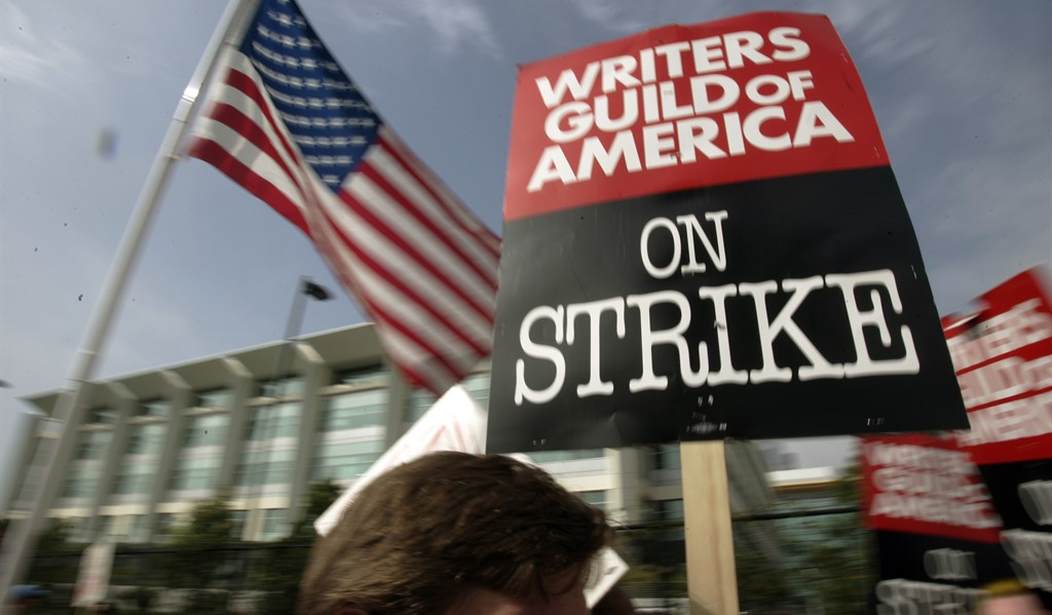The strike in Hollywood has been grinding on for several months now. And while it gets plenty of media coverage, we’re not hearing much about productive discussions or progress toward a resolution. I have a couple of friends who are guild members and they keep me updated on some of the talks, but nobody seems terribly hopeful, or at least not yet. But while I always feel sympathetic for the people out of work, a thought struck me this week when I was reading one of the latest updates from CNN. This has been going on for roughly 100 days now. Assuming that you’re not one of the striking members of the guilds involved or directly involved in the movie business, have you really noticed much of a change in your day-to-day life? Because I really haven’t. I haven’t been out to the movies in years, but I see there are still films playing at our local theaters. And my normal television programming seems to be showing up as usual.
I don’t know how long that situation will continue, but CNN claims that we’re really not seeing an end to this on the horizon. The two sides finally agreed to talks last week, leading some to believe that a deal might be in the offing. But the talks reportedly fell apart basically before they had begun.
As the writers’ strike careens toward the 100-day mark this week, there is still no end in sight for the historic work stoppage that has brought the movie and television industry to a standstill and wreaked financial havoc on the interconnected web of people who rely on the business to make ends meet.
When news emerged last week that the studios and striking writers were set to meet for the first time since the strike commenced in early May, a ray of hope emerged in Hollywood. It seemed that maybe — just maybe — after a long, hot summer of picketing and trading barbs, hope might be on the horizon.
But it ultimately seemed to be a mirage. Even before the meeting occurred, it was clear that it would not prove to be very fruitful.
This is primarily a fight between The Writers Guild of America along with SAG-AFTRA and The Association of Motion Picture and Television Producers, though other groups have thrown in to show solidarity with the WGA. Both sides clearly have legitimate complaints, but it’s difficult to see how either of them blink first in a major way.
As I said above, I can sympathize with both sides here, particularly the Writers Guild for obvious reasons. (For the record, I’ve never been a member and generally avoid union situations where possible for both personal and political reasons.) The AMPTP is dealing with an entirely new world where streaming services cut into their revenue in a big way and traditional movie marketing has been forced to evolve. Revenues are down and they’re seeing increasing competition from independent outlets. So they’re looking to trim labor costs wherever possible.
But the actors and the writers are also slogging along in a brave new world. Both acting and writing are professions that are seeing increasing threats in the form of Artificial Intelligence. Fake virtual “actors” are already snagging many roles in films and television shows. Generative AI is already producing credible scripts that might pass muster without a ton of editing. The studios reportedly already asked some actors to sign away the rights to their “virtual selves.” It’s not hard to sympathize with them.
Call me callous, but I’m not feeling terribly bad for the heads of the studios, the successful producers, or the superstar actors that have been regularly bringing in tens of millions for each of their movies, regardless of how dubious the content might be. But I do feel bad for the extras and lesser-known actors along with the weekly television show writers, many of whom toil in anonymity for not all that much money in the hopes of hitting the big time. It’s the same as how I have pretty much no empathy for Bud Light and Anheuser Busch, but I do worry about the delivery route drivers and the people working in the stock rooms. Sadly, I have no magic solution to offer.
In closing, however, I’ll return to the question that I posed at the top. Are we going to simply “run out of movies” eventually? And would that impact your life all that much? Are there any weekly television shows you simply couldn’t do without? It just seems to me that we live in an era when other content creators are already streaming in to compete with the old guard and could at least partially fill that void. We’d likely get some lemons mixed in with some hidden gems, but content creation is no longer the exclusive province of a few kingmakers in Hollywood. And the entire industry will likely need to adapt to this emerging environment if they want to survive.







Join the conversation as a VIP Member